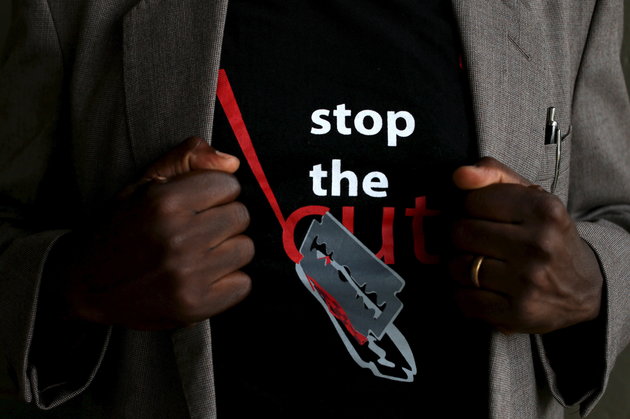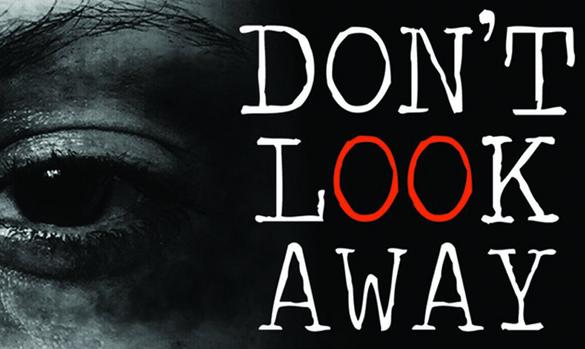The ghost of sexual corruption is reported to dig its roots in offices, learning institutions and trading areas.

The Police Gender Desk has confirmed that house-maids are another group of victims facing this form of harassment at a hefty extent.
The law enforcers state that sexual assault to house maids is increasing because the victims have minimal chance to avoid such uncouth action as they are being coerced.
All the victims seem to be refraining from reporting the abuse due to various reasons, including being bribed by the assailants while others feel shy, and a few of them are not aware of where to report.
In so doing, the Women Fund Tanzania (WFT), a Non-Governmental Organisation (NGO) has sponsored awareness campaigns that have played a crucial role in awakening the public regarding the occurrence of the inhuman acts.
As part of implementation of the programme, the fund released some 10m/- to the police’s gender desk for executing administration matters in gender issues at the Ilala regional police offices for three months, effective from late November last year.
In one of the on-going campaign sessions, a member of Miembeni Local Government Street in Vingunguti area, Ms Benedikta Alphonce confirmed that housemaids are among the most affected group since the number of complaints kept increasing in her office.
She also admitted that the increase in complainants was due to regular public education where house girls not only report on the occurrence of sexual corruption but all Gender Based Violence (GBV).
“Unfortunately, some have been reporting while already impregnated by either their boss or other male relative of the family they work in. They narrate how they are cuckolded by various promises, including being married or finding them another lucrative job,” she said, adding that: “Some bosses threaten to fire their house-maids in case they refuse to have affairs with them. At the same time, those who accept the proposal earn nothing but pregnancies or diseases. In such a situation, it means girls are also prone to transmitted diseases, including HIV/AIDS.”
Ms Alphonce maintained that her office has plans to introduce mobile services that will have them conduct a door to door for education dissemination on the negative effects of GBV acts and encourage the victims to report and stand firmly for their cases.
However, lack of special areas to accommodate the victims at local government offices was among the challenges faced by GBV fighters.

Some girls refrain from reporting the crimes that are being done to them because they will have nowhere to stay after their actions land them in conflicts with their bosses.
“As a result, many opt to endure the agonies. Those who get impregnated by their bosses end up being abandoned because the female bosses either chase them away or return them to their home villages,” said Ms Alphonce.
“But we still believe in regular public education. We have already made major headway. If the victims appear to report the cases, they will gradually fight for their rights and their fellows in the society. We extend the call to other stakeholders to strengthen the war against GBV,” she said.
Police Gender Desk Coordinator in Ilala region, Christina Onyango said public awareness campaigns were important since there are still many groups in need of GBV education, including women who have been violating themselves through giving sexual bribes all in the name of earning some income.
She said that a woman who engages in sexual activities does practice GBV against herself and at the same time committing a crime, as the law indicates that whoever requests or offer any kind of bribe will be committing a crime.
“In such circumstances, men have also the right to take legal measures against women who solicit them to have sexual affairs, though proving the allegations is a major challenge for whoever complains of such kind of crimes” she said.
Ms Onyango urged victims to collect as much evidence as they can, saying sexual bribe is also a type of corruption that is under the Prevention and Combating of Corruption Bureau (PCCB).
She also complained of lack of full cooperation from the victims, saying many have been preferring to solve the cases at family level and leave the filed cases at police and the courts half-way.
“And that is a part of our key message to people in these public awareness campaigns that perpetrators are in their homes. It becomes difficult for the complainant and the accused from the same family to run the case. They therefore decide to compromise out of legal authorities, hence, slowing down the GBV fight,” she says.
Commenting on the scope of GBV situation in general and the groups that are most affected, the Central Police Station’s OCD, SSP Israel Makongo said that there was a remarkable development since public education seems to have awakened the victims, pushing them to report the assaults.
He added that GBV acts face every group of people in the society, though records indicate that the most affected groups are women and children.
“Men’s cases are more serious than other groups because the male victims have been refraining from reporting the incidents under various grounds, including fear of damaging their reputation,” he noted.
Again, lack of private rooms in police stations might be another reason for men avoiding to file cases.
“This is due to the fact that BGV cases need special rooms with less interaction to give more freedom for the victims to speak out,” says the OCD.
He urged municipal councils to consider setting aside the budget for construction of well-equipped police stations with special rooms for gender based cases, like they (municipalities) have been doing in constructing well-equipped schools and health facilities.
“Police stations also need more equipment just like any setup in learning institutions and health facilities, where they have modern machines, laboratories and staff with different expertise, to mention a few,” he stressed.

